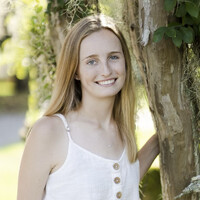On Tuesday, Nov. 5, something unusual happened — I felt an itch of curiosity to click on a Facebook ad. Typically, I scroll past these things, wary of their intentions. I wouldn’t put it past me to fall for a pyramid scheme, honestly. But something about this ad felt different — it advertised “Poetic License,” a film directed by Maude Apatow, starring Leslie Mann and Andrew Barth Feldman. If those names don’t ring bells, just know this: each of them holds their own in Hollywood, bringing talent and passion to the work.
Two days after applying, a text pinged my phone at 8 a.m., asking for a “rush call.” With just two hours to get to Agnes Scott College, I faced a decision: skip my classes to play the role of a college student or stick to my routine. It took less than a second to choose the adventure, and I stepped onto the set without regret.
Being on set with Maude Apatow felt surreal. Apatow played Lexi in “Euphoria,” a show that, in my view, stands as one of the most visually compelling productions on television. I even wrote my senior thesis on it in high school, analyzing the program’s layers of artistry and meaning. Watching Apatow direct scenes up close felt like seeing my thesis come to life, as I connected with someone whose work I had long admired. “Euphoria’s” layered characters, haunting cinematography and unique aesthetic sparked something in me, showing me the ways media can shape us. To see Apatow — who once brought Lexi’s intricate character to life — now directing her own creative vision added a powerful and personal connection to my experience.
With zero acting experience, I didn’t expect the level of precision that goes into “extra” work. I assumed extras just blended into the background without much thought. Yet, in every scene, each extra received guidance — gestures, cues, placements — that felt surprisingly intentional. We served not as faceless fillers but as part of the visual rhythm, enhancing the leads’ performances. When I brushed past Andrew Barth Feldman in a scene, excitement flooded me, and I admit, I caught myself staring more than once as Apatow fine-tuned the shots, bringing “Poetic License” to life, frame by frame.
The people I met among the extras quickly made the day unique. Professional actors, students from Tech, Georgia State and Agnes Scott, models with perfectly smudged makeup and distinct poise, and even a tech worker on a whim — all brought creative energy to our group. We swapped stories, ambitions and bits of advice, creating camaraderie that made the long hours feel light. I had expected to play a small role in the film’s backdrop, but I found myself surrounded by individuals who reminded me why art in all forms pulls people together. The diversity of their stories, talents and dreams was a revelation in itself.
A small role, after all, can lead to unexpected places. Matthew McConaughey, one of Hollywood’s most recognizable actors, started as a film extra. He caught the attention of a casting director, which led to his breakout in “Dazed and Confused.” “Alright, alright, alright” was born, and the rest is history. You never know who might notice you, even if you’re at the edge of the scene. While I may not aspire to fame, the idea that a chance encounter could change everything — even for an extra — adds an element of possibility that makes these experiences more than worth it.
Watching the actors and crew work together, I thought about my own aspirations. In the future, I hope to work with creatives, perhaps as an entertainment lawyer representing actors, musicians and authors, or by working directly in the industry myself. Seeing the collaborative effort behind each scene fueled that desire. The film industry — like any artistic field — depends on a blend of vision and expertise, spontaneity and planning. Every lighting adjustment, camera angle and actor’s gesture worked in harmony, each person giving their best to create something larger than any one role.
Being on set taught me the intricate dance of film production. I watched the crew tweaking every detail with a blend of rigor and artistry, each person focused yet fluid. The hours passed slowly, one detail blurring into the next, yet I felt present in a way that transcended routine. I began to notice how each element served a purpose, shaping our scenes into something that would later seem effortless. I realized that even if I never work on a film set again, the experience offered a perspective that transcends the screen. It showed me the world of those who create, collaborate and labor behind the scenes, in the often-unseen realms of art and storytelling.
To anyone considering a leap into the film world, even for just a day, I say take it. Playing a film extra won’t make you famous. But it will give you access to a world of collective creativity. You’ll gain something too few college experiences offer: the chance to be both visible and invisible in a work of art, to step outside your own narrative and into something larger.
